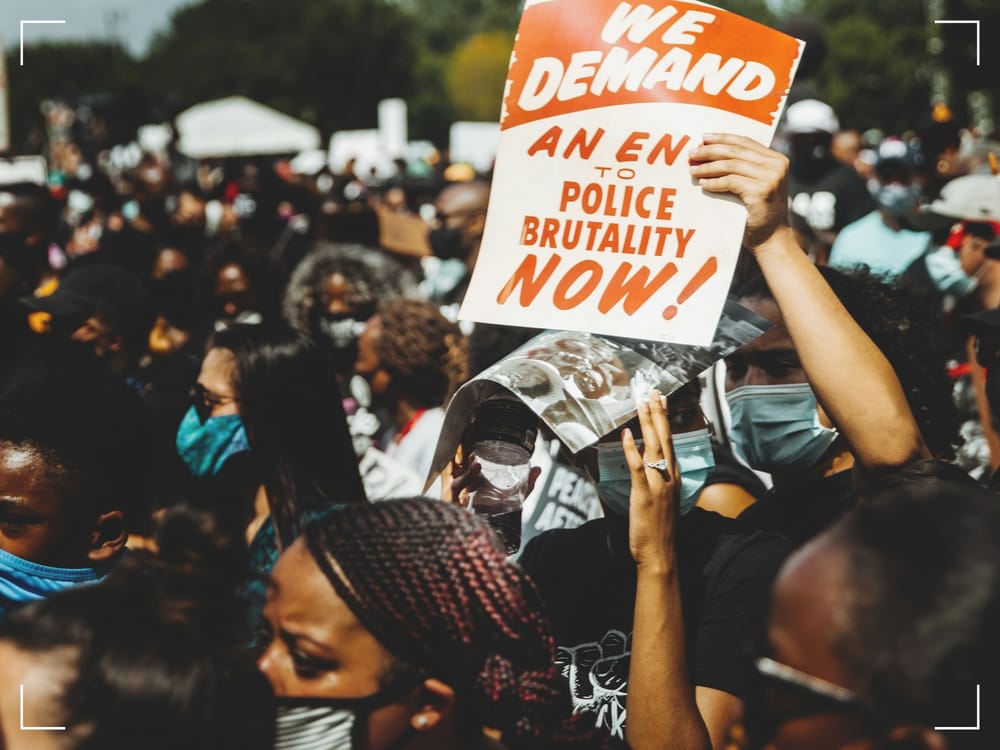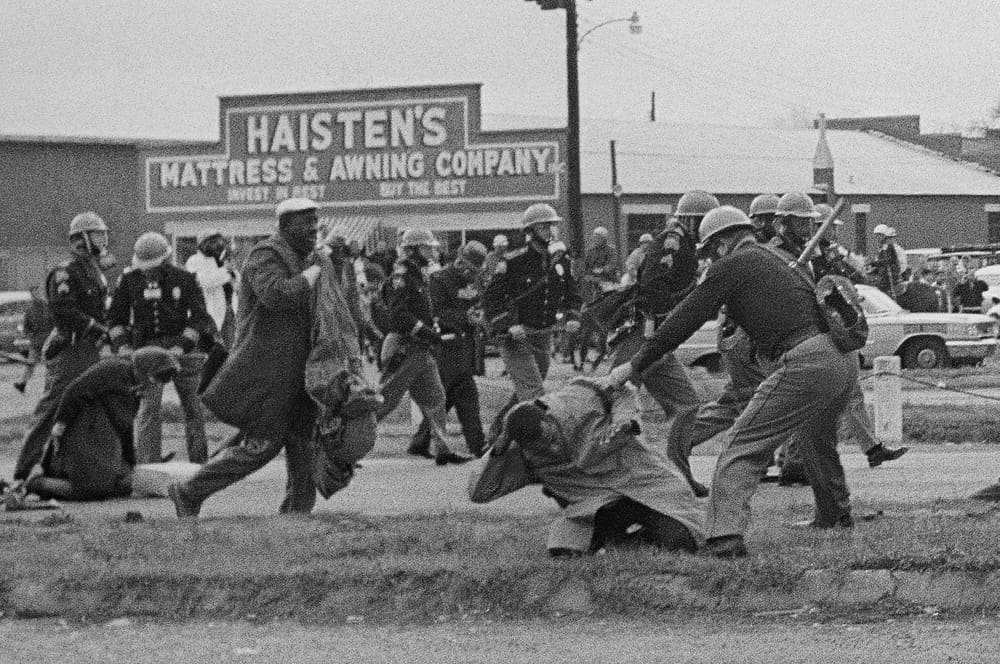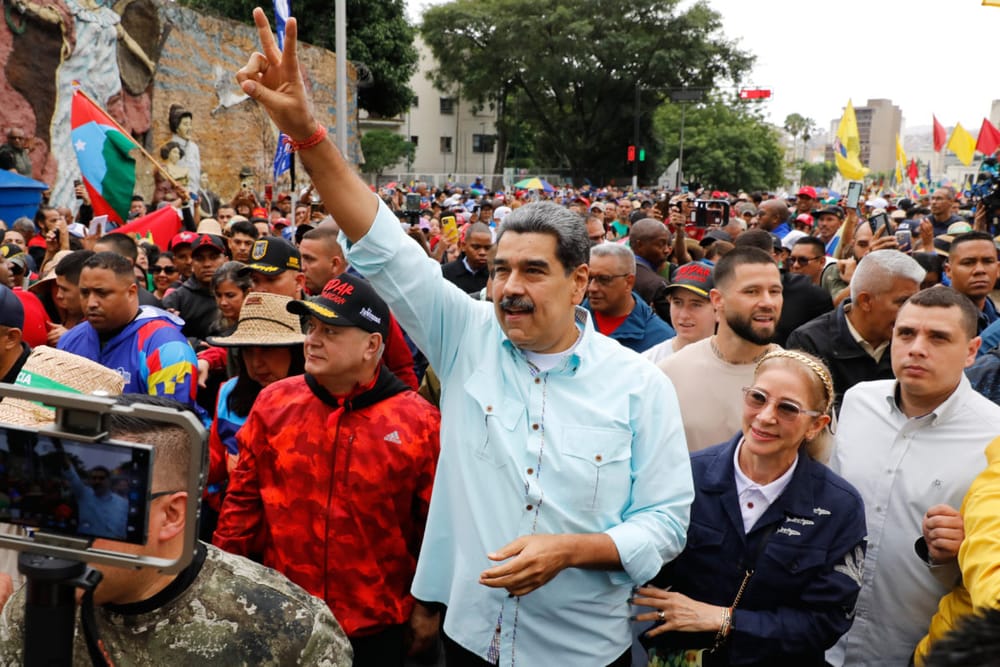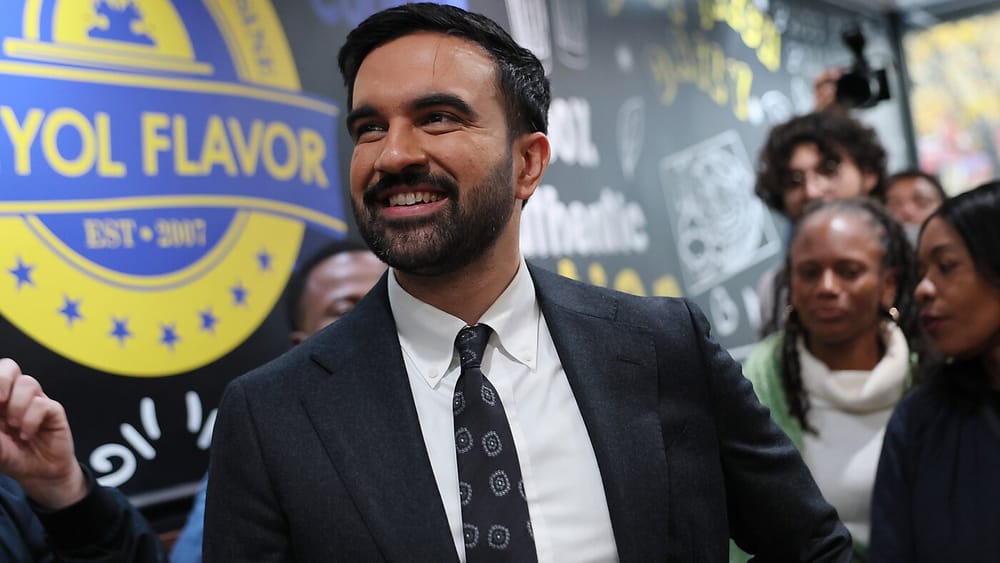Our current political reality is marked by overt expressions of white nationalism at all levels of American government and uncertainty in how we fight back. This regime creates chaos with a blend of heavy-handed propaganda and unsophisticated dog whistling. It assails Blackness, exploiting racial resentment and stirring working-class whites into support at the ballot box and in the streets. It has also increased its use of police intimidation on both everyday people and activists who dare to stand up against injustices like the genocide in Palestine.
Given these conditions, many have questions about the role of Black radical organizers today. How should we resist? What role should Black radical organizers take up in the resistance?
Some suggest we stop being openly radical, move outside the country, or go underground–not to fight, but to engage in a more passive resistance that does not challenge the state. Some say we should build a new economy on top of the current one without admitting (or realizing) that capitalism does not yield to its alternatives. I reject the notion that this time period calls for a deactivation for fear of being attacked by the state.
No euphemism for socialism will make a difference without a direct struggle against capitalism and white supremacy.
To further define and clarify the role of a Black radical organizer, I added a fresh take on my article from last year, What Does It Mean To Be A Radical (Black) Organizer Today.
What is a Black radical organizer?
A Black radical organizer is someone who's been trained to go into the community and work with people, to develop their political consciousness, and to help them organize for power.
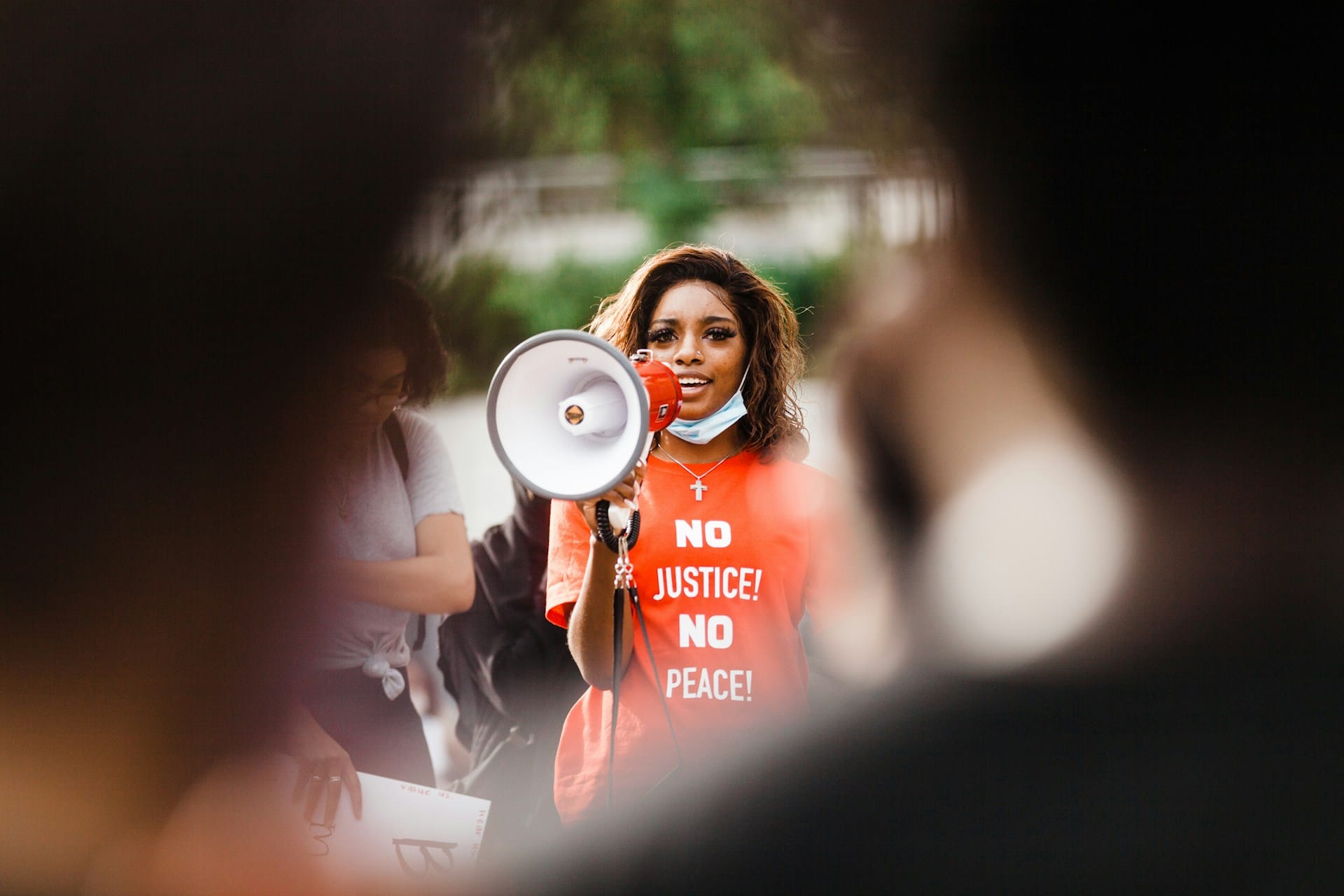
What does a Black radical organizer believe?
A Black radical organizer believes that capitalism and white supremacy are at the root of our problems. They know the only way for us–Black people–to fight for liberation is for us to gather in organizations and to fight back as a collective.
What does a Black radical organizer do?
Organizers build and fight. To build is to create alternative programs and institutions. This helps people see that radical organizers aren't just providing rhetoric, but they're providing a material basis for what life can be like post-capitalism if we organize collectively. To fight is to resist and, ultimately, dismantle the state's harmful policies and programs and challenge how it operates in our community. The role of the Black radical organizer is to bring all that to fruition.
Great organizers study, both alone and in groups, but studying is not necessarily organizing. Studying is a good way to ground your work, and you apply a deep study practice when organizing in Black communities. A good place to start is texts that share our recent history around the Panthers, Malcolm X, SNCC, and the UNIA. Other good reads include those that help you learn the history of organizing, white supremacy, and the functions of capitalism.
Do organizers need experience or special skills?
I believe organizers are made. There may be people who have certain skills that can be applied to being an organizer, but if your ideology is not sound, then you can’t lead the people anywhere. Good skills for organizers to have are connecting with people, following up with people, understanding data collection, getting people to come to meetings, and getting them involved in the community. Organizers need to train on the ground, but you get better the more you do.
An organizer can’t be scared to make mistakes. They should understand that most attempts to organize will not be successful, but the more you try, the more you move your work forward. So, I think organizers have to have tough skin.
Why do we need organizers?
We don't always need organizers to mobilize–that's people hitting the streets to take in response to injustice. We need organizers to pull that energy together so when the mobilization phase begins to fade, we can continue doing the work, even when a tragedy or some big event is not at hand.
An organizer’s primary purpose is to swell the organization’s ranks, move people to do organizing work, and build together on an ideological framework.
That can be done through campaign work, meetings, service work, mutual aid, canvassing, conversations, etc.
We need folks who are political and politicized to understand that our enemies themselves are organized. The only way that we can even begin to do all the work that needs to happen–things like defend our community, provide mutual aid, fight and struggle around land, fight and struggle around some economic control, trying to control the block, having other forces that can be a middle ground for security for our community that keeps the police away–can only happen through people who practice radical organizing that politicizes people and compels them to be involved with community. These are our organizers. Black radical organizers.
What should an organizer look for in an organization?
A good organization, particularly a mass organization, is one that can hold different opinions at times and still figure out how to work together. It should have multiple levels of leadership. A good organization should have a solid structure while staying flexible.
Ideology is important, as is how people treat you. But the most important thing is that you think the organization can carry through the task of creating a radical movement in Black communities. If you can find an organization that does that, then join and try to fight with and for that organization.
Community Movement Builders (CMB) is a member-based collective of black people creating sustainable, self-determining communities through cooperative economic advancement and collective community organizing.
Kamau Franklin (he/him) is the founder of Community Movement Builders. He’s been a dedicated community organizer for over thirty years. For 18 years, Kamau was a leading member of a national grassroots organization dedicated to the ideas of self-determination and the teachings of Malcolm X. He’s spearheaded organizing work in areas, including youth organizing, police misconduct, and developing sustainable urban communities. Kamau has coordinated community cop-watch programs, liberation schools for youth, electoral and policy campaigns, large-scale community gardens, organizing collectives and alternatives to incarceration programs. Kamau was an attorney for ten years in New York with his own practice in criminal, civil rights and transactional law. He now lives in Atlanta with his two children.
